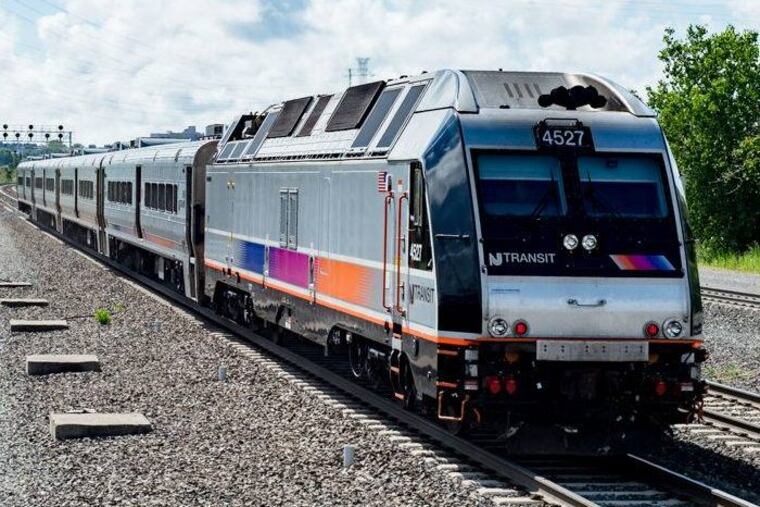N.J. to borrow $500 million without voter input for transit
Governor Phil Murphy’s administration approved $500 million of borrowing without legislative or voter approval to help cash-strapped New Jersey Transit replace decrepit commuter buses and trains.

Governor Phil Murphy’s administration approved $500 million of borrowing without legislative or voter approval to help cash-strapped New Jersey Transit replace decrepit commuter buses and trains.
The state’s Economic Development Authority signed off on the financing on Tuesday at a meeting in Trenton without public discussion. The agency will own the new equipment, while NJ Transit, the nation’s largest statewide mass-transportation provider, will make lease payments on the trains and buses.
The arrangement allows Murphy to circumvent New Jersey’s constitutional mandate of voter approval for such borrowing. That back channel was used by former Republican Governor Chris Christie in 2017 to fund a $300 million statehouse renovation. Christie’s approach drew an unsuccessful legal challenge by Republican and Democratic lawmakers.
Murphy, a Democrat and retired Goldman Sachs Group Inc. senior director, initially criticized Christie’s renovation financing as “an insult and an exercise in arrogance.” But in May 2018 he said the project was necessary to restore the capitol building in Trenton, the second-oldest in continuous use in the U.S., with portions dating to 1790.
Mahen Gunaratna, Alyana Alfaro, Alexandra Altman and Matt Saidel, all representatives for the governor, didn’t immediately respond to emails asking for comment.
NJ Transit spokeswoman Nancy Snyder described the bond arrangement as a “conventional financing mechanism,” with the borrowing to take place in January.
“Financing in this manner will allow NJ Transit to move forward as expeditiously as possible to address one of its most pressing needs while also enabling the state to take advantage of the currently favorable interest rates,” Snyder said in an emailed statement.
NJ Transit’s board previously approved the purchase of 700 buses and 16 locomotives, according to an agency statement.
New Jersey, burdened with pension payments, ranks among the most indebted U.S. states. Voters in 2008 approved a change to the New Jersey constitution to limit borrowing. Since then, the development authority has approved at least $1 billion in spending using the leasing model.
The NJ Transit board is scheduled to approve the deal at a meeting in Newark on Wednesday. NJ Transit will “pledge a portion” of New Jersey Transportation Trust Fund appropriations, which are supported by the gasoline tax, to make the lease payments, according to development authority documents.
NJ Transit’s media representatives didn’t immediately respond to a request for financing details.
The development authority and NJ Transit made a similar agreement in June 2018 to replace the Portal Bridge, a balky century-old span over the Hackensack River that is key to Northeastern U.S. passenger rail. Those bonds, totaling $600 million, have yet to be issued.
Murphy, who took office in January 2018, has pledged to turn around NJ Transit, whose safety record and service declined amid decades of spending cuts and capital-to-operating budget transfers.
Some lawmakers have said that Murphy hasn’t acted quickly enough, and NJ Transit is the subject of legislative hearings to determine the depth of its financial troubles and recommend recurring revenue sources. The development authority also is under scrutiny by the state attorney general’s office and a Murphy-appointed panel, which has identified loose oversight and potential manipulation of the agency’s $11 billion tax-incentives program.
(Updates with agency comment starting in sixth paragraph.)
To contact the reporter on this story: Elise Young in Trenton at eyoung30@bloomberg.net
To contact the editors responsible for this story: Flynn McRoberts at fmcroberts1@bloomberg.net, William Selway
©2019 Bloomberg L.P.